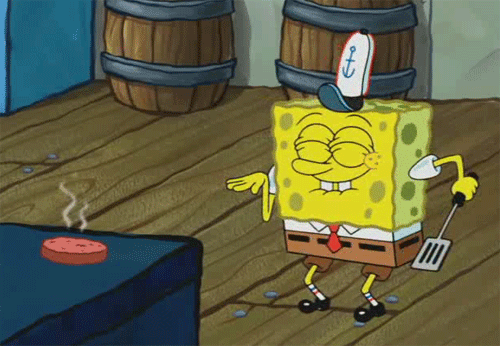Project Based Learning
Hello! Today I will be writing about Project Based Learning. As you already know, I am the teacher of a 6th-grade class called Learning Lab. In this class, we study and practice Executive Functions to help students survive and enjoy school.
During the year, students practice skills such as planning, being ready to work, following caring instructions, time management, group work, and organization. We use rubrics to have clear expectations and to include their self-assessment in the educational process.
It sounds nice and pretty, right? However, these kids tend to be reluctant to go to my class because they feel that it highlights their needs and challenges, and schedule-wise, if they have Learning Lab, they can not take an elective (music, French, art, photography, etc).

Some of them refuse to work completely and others do work "just to get rid of it". Motivation is a big issue! I really wanted to do projects that motivated my students and that would let them practice these skills in real life so they could see the relevance of the lessons.
After having a discussion with them, we decided to have a Cooking Project as an end of year activity.

Driving Question: how can I use my executive function skills in real life situations?
Project Objective: use executive functions in real life situations, understand the importance of executive functions in real life.
Project Description: in this project, you will become you will choose a recipe that you like, plan the steps and materials needed, bring them and prepare the meal in school. You will work with your peers to organize dishes that combine and complement each other (on a Google Doc) and will work together in the school's kitchen. We will have a "dinner" party and invite teachers to try your food. This will also be our end of the year celebration!
Rubric: the magic map! Make sure to check it regularly to see if you are on the right track. We will discuss the rubric as a class and go back to it constantly.
This is an example of the shared document where they collaborated to plan the dinner party. In one single doc, each student created a chart like this and planned their meal. Some of them worked together in one dish.
Chocolate Chips Cookies (Rachel) cookies no chopped nuts by the way
| ||
Ingredient
|
Quantity
|
Utensils
|
1. chocolate chips
|
1 package
|
bowl
|
2 .flour
|
2 ¼ cup
|
teaspoons
|
3 .salt
|
½ teaspoon
|
Cup measurements
|
4.sugar
|
¾ cup
|
Wisk
|
5.butter
|
1 cup
|
Mabey a spoon
|
6.vanilla
|
1 teaspoon
|
Cookie sheets
|
7.eggs
|
1 egg
|
rounded tablespoonfuls
|
8.Baking soda
|
1 teaspoon
| |
Steps
| ||
| ||
This document was very helpful to give immediate feedback. I could comment and suggest right in the document and kids could share ideas and give feedback to each other (and I would have access to it, even if they deleted it).
Also, we maintained constant discussions about the evolution of the project and what skills were being used. Students identified the types and help that they needed to be successful, such as set reminders on the phone to bring ingredients and break down directions into smaller steps.
During the cooking part, I gave immediate feedback on the skills practiced (for example, organization and group work) instead of concentrating on their "cooking skills". This is very important! The goal is not to become an expert chef so the final product should not be graded. It is all about the process!
Next time I do this project, I would spend more time understanding the rubric, and I would even build it with the students to make it more meaningful.
"Have students either (a) practice using the rubric several times or (b) co-create a rubric and then practice using it." (Larmer, 2013).
Larmer, 2013, suggests that we can present examples of performance (on video or imaginary situations) and ask students to assess them using the rubric, to practice before their big day.
Here you will find some pictures. I had to cover their faces but I let their smiles out for you to see=)
References
Larmer, J. (2019). How to Get High-Quality Student Work in PBL. [online] Edutopia. Available at: https://www.edutopia.org/blog/high-quality-student-work-pbl-john-larmer [Accessed 13 Jan. 2019].



No hay comentarios:
Publicar un comentario